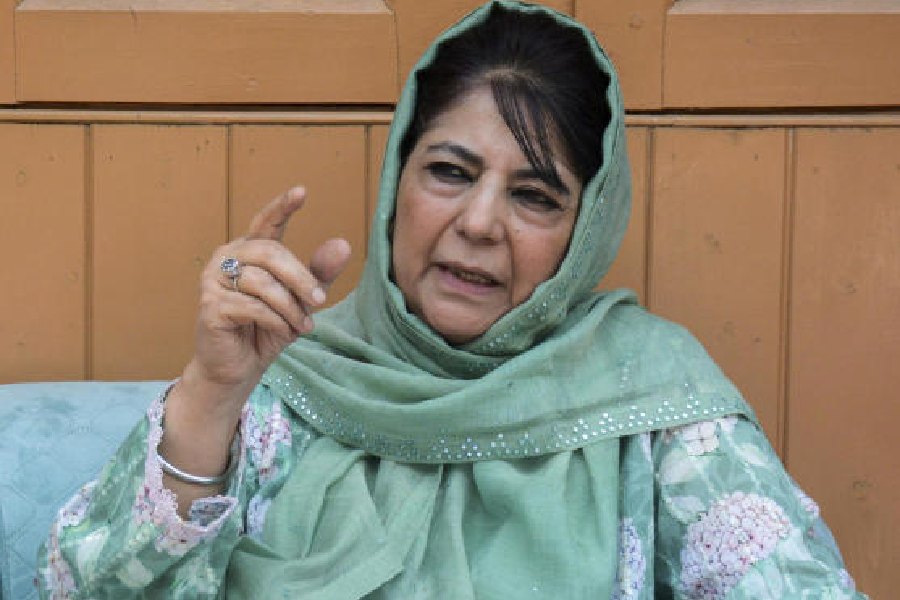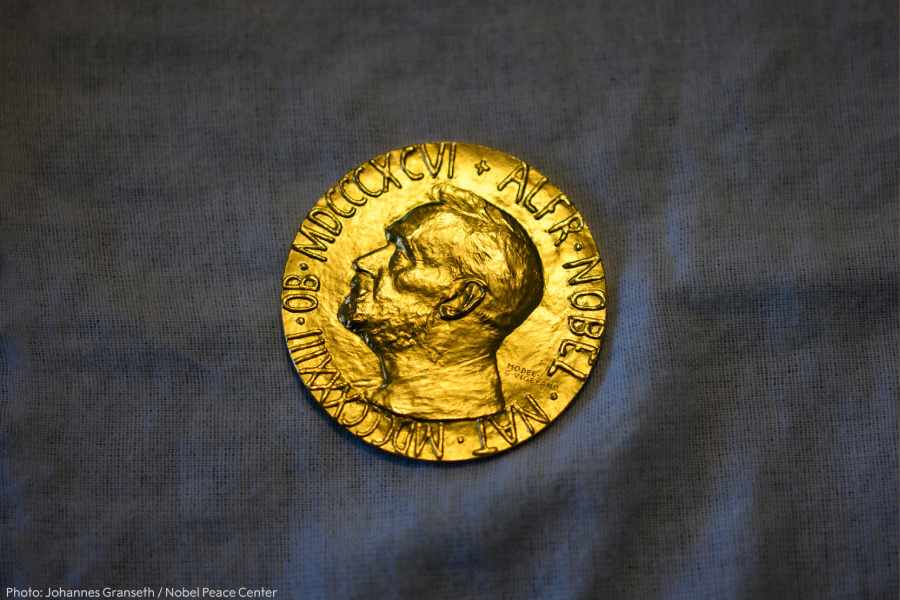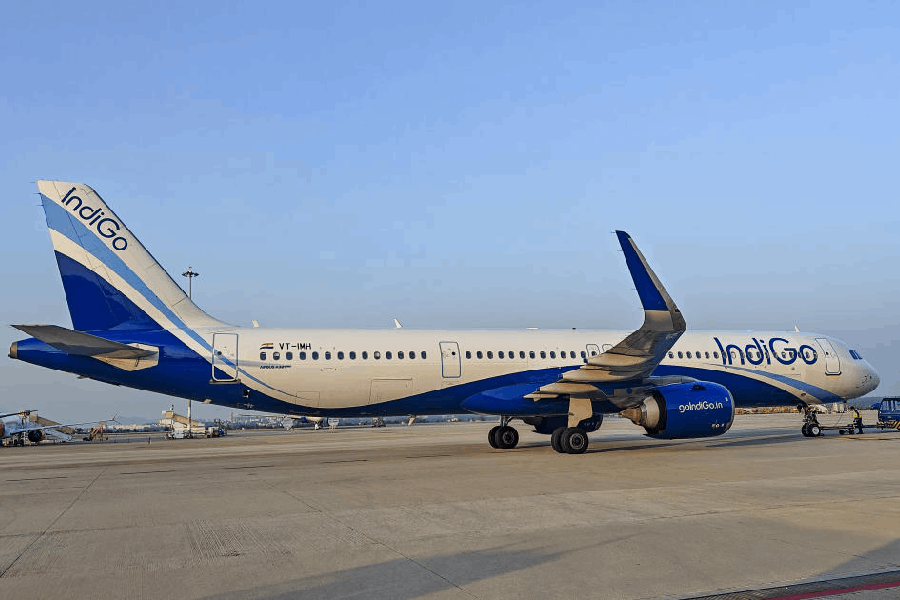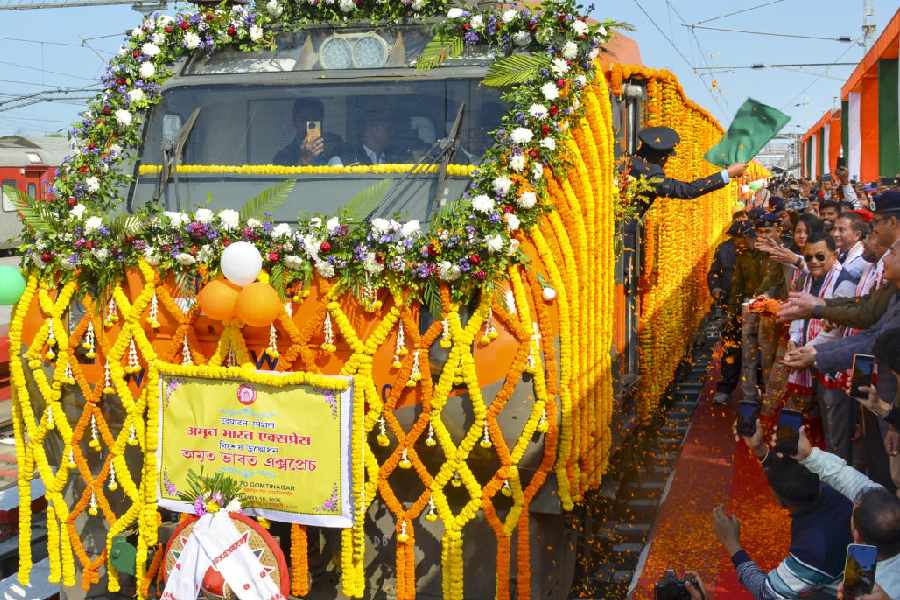Oct. 1: There are 15,000 reasons for hosting the India-Africa Forum Summit in New Delhi one month from now. That is the number of houses in small, remote African hamlets which get electricity because of "barefoot grandmothers" from these villages who went to India to learn how to dispel the darkness surrounding them at night.
Because of a pioneering project under the auspices of the United Nations Development Programme, which has now been adopted by the Indian government, 300 grandmothers from 37 African countries have been trained in Rajasthan as solar engineers. These grandmothers have returned home from training at Barefoot College in Tilonia near Ajmer with a solar lantern each to convince fellow villagers that sun can provide them light even at night.
Gradually through a combination of grit and persuasion, they have led a solar "revolution" that has electrified 15,000 households in Africa. "When I went to India my name was Fatima, now I am called Fatima Engineer in my country," says one of them with pride.
Why grandmothers? Because they are committed to their villages. Unlike young men, they are not looking to migrate and embrace the nearest city's charms at the first opportunity. These grandmothers have strong roots in African villages. They are likely to convince village elders that changes in their midst are worth a try and overcome traditional resistance to new ideas. The effort is working: it is easier to convince African communities than those elsewhere because of concepts of community ownership in many African societies.
Africa is a constant presence and lives in the daily lives of Delhi'ites.
The people of Delhi began engaging Africa long before any mandarin in South Block, the seat of Indian diplomacy, conceptualised a summit of African heads of state and government in the national capital.
Precisely a month from now, the third India-Africa Forum Summit will take place in New Delhi. A huge slice of Delhi's residents, larger than the population of some countries that will send their Presidents or Prime Ministers to next month's summit, think at least fleetingly of Africa every day when they commute to work or go back home from office.
Tens of thousands of the capital's children can only get to their schools every day if they pass through an "African" environment. The majority of visitors to the capital who arrive by air cannot reach their destinations without invoking New Delhi's African links.
Four of New Delhi's arterial roads have an Africa connection or are named after leaders in Africa. Mention some of those names and many Indians will miss a heartbeat.
Nelson Mandela, for instance. An important road named after Mandela connects two of the capital's best addresses, housing colonies that are high-end.
The majority of visitors to Jawaharlal Nehru University, the capital's most prestigious institution of higher learning, have to pass through Nelson Mandela Marg to get to the campus.
Three swanky shopping malls, which showcase India's steady economic liberalisation in the last two decades, stand out on this road named after "Madiba", the clan name by which South Africans affectionately addressed Mandela.
An anchor of India's emergence as a self-reliant nation, the Indian Institute of Technology, Delhi, is linked to the visually appealing and vitally important diplomatic enclave of Chanakyapuri by a boulevard that is the generic embodiment of the country's friendship with the continent in question: Africa Avenue.
If you drive along Gamal Abdel Nasser Marg from trendy Hauz Khas, a tourist draw and home to some fun eateries and bars in posh South Delhi, you end up on Africa Avenue.
So the capital's Africa connection is not just multiple but literally sprawling. Nasser, who easily outgrew his African geographical limitations when he was Egypt's President, may no longer enthuse young Indians, but he was a hero to this writer's generation. Fidel Castro arrived on the global stage only later.
Kwame Nkrumah who? If Delhi'ites today ask why a road in Chanakyapuri bears that positively African-sounding name, they ought not to be blamed.
For that matter, most Indians no longer remember that Nkrumah's native land, Ghana, was once known as the Gold Coast. It's a name that conjures up fantasy images of Ghana's potential wealth.
Nkrumah was the first Prime Minister of independent Ghana and one of the founders of the Organisation of African Unity, which has an important place in Indian diplomatic schemes today under its new name, the African Union.
Nine years into Ghana's freedom, Nkrumah's promising political career as a pan-African leader was cut short by a coup. In line with his short tenure in office, Kwame Nkrumah Marg is a short stretch of road unlike the three boulevards with African connections.
The third India-Africa Forum Summit next month may produce long declarations and wordy joint communiqués but its impact at the popular level will hopefully be to rekindle the friendly bonds that once united Indians and Africans as peoples.
With the passing of an era of heroic decolonisation struggles on the African continent that once inspired Indians, and with India's own "midnight's children" making way for generations that have no personal experience of British colonial rule, Indians and Africans have drifted apart as peoples in recent years.
Growing intolerance in India's increasingly divisive society has added to this alienation from each other.
Of the many incidents of racism against Africans living in India, the worst was a midnight vigilante raid organised by the now-discredited Somnath Bharti on the residences of a few Ugandan women in South Delhi last year when he was Delhi's law minister in the Aam Aadmi Party government.
The organisers of the third India-Africa Forum Summit, the ministry of external affairs (MEA), has been putting out daily stories of Africans living in India and their contributions to their host society.
The daily posts by MEA, which began only a few days ago on YouTube and Facebook, have already drawn a surprising nearly 85,000 "likes" on the latter. Such popular interest in the work of Africans living in Delhi and elsewhere in this country is a good augury for the summit and may help combat any hostility towards Africans in India.
Because of these MEA posts, we now know that Ugochi from Nigeria is a growing sensation in Delhi's modelling circuit. She has been in India for six years, designing clothes and modelling once she finished her higher studies for which she had originally arrived.
When she first wore a sari on the fashion ramp, she was terrified that it may fall off during her catwalk. She has already worked for Manish Malhotra, Sabyasachi Mukherjee and Tarun Tahiliani.
Jerry, also from Nigeria, is a film director making films in Hindi and African languages. He is also doing sound direction. Jerry is staying put and has set a personal goal of becoming a well-known film director in India in 10 years.











